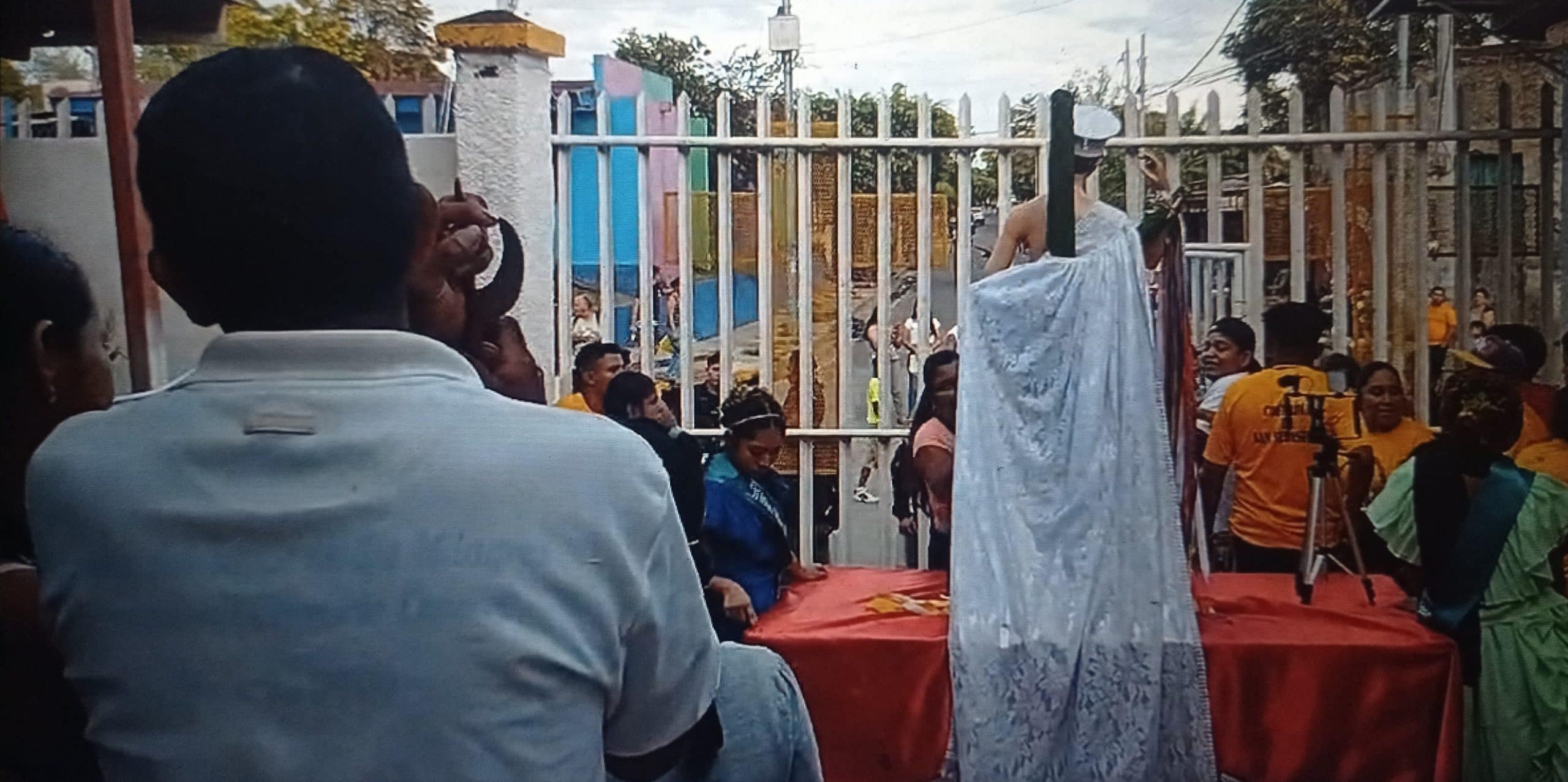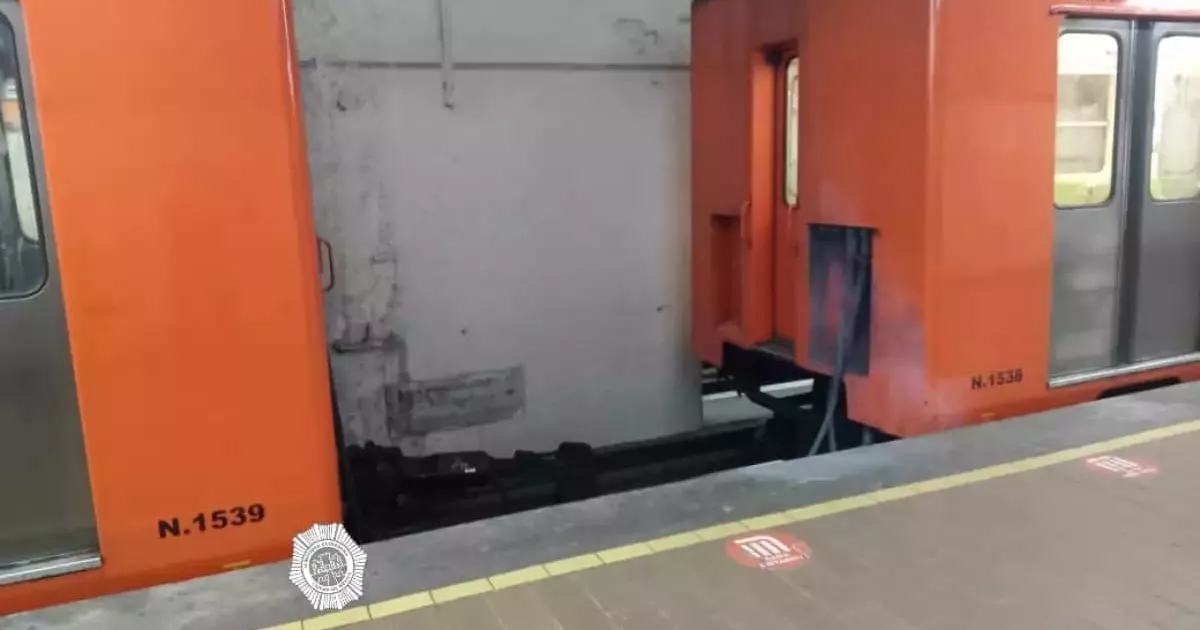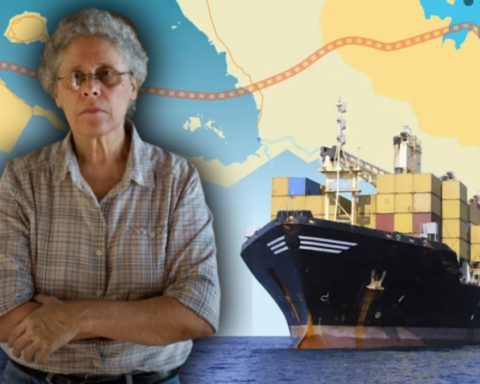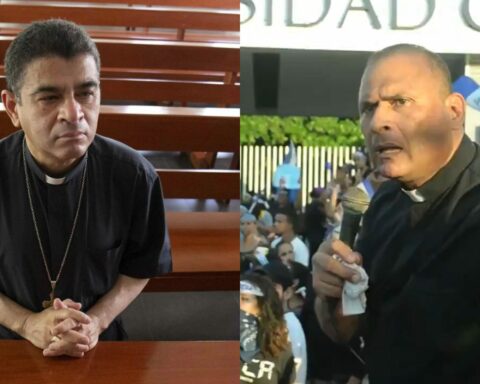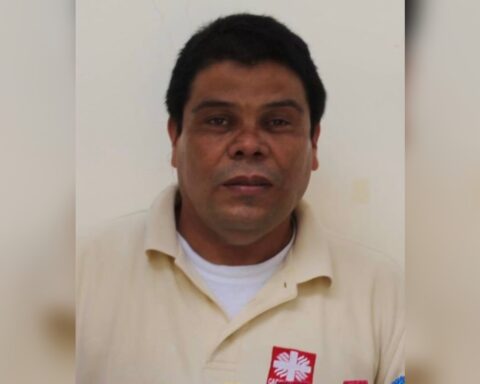The regime of Daniel Ortega and Rosario Murillo has prohibited at least six processions during the first two weeks of 2023, in addition to Send Bishop Rolando Álvarez to trial -with a house in prison for three months- and has maintained police intimidation against priests in various cities in Nicaragua. These actions, according to human rights defenders, project a year “the same or worse than 2022”, when the dictatorship intensified the persecution against the Catholic Church and imprisoned eleven religious.
The researcher and lawyer, Martha Patricia Molina, considers that the year 2023 “began extremely aggressive. All these elements -in relation to the prohibitions of processions and judicial processes- project that it will be a disastrous year for the Catholic Church…”held.
In four months of 2022 the ortega regime prohibited six large processions in the country. However, currently, these restrictions have also been extended to more local religious celebrations, accounting for six images of saints that had to remain in their temples during the first half of January.
The Ortega regime has prohibited the following processions so far in 2023:
- The traditional procession of Jesus Sacramentado, that takes place every first of January in the company of hundreds of parishioners. The president of the Episcopal Conference of Nicaragua (CEN), Bishop Carlos Enrique Herrera, argued in a public statement that it was due to “reasons beyond our control.”
- The procession of San Silvestre, in Catarina, Masaya municipality, on January 1st. The image only came out to the atrium of the Santa Catalina de Alejandría parish.
- The procession of the Lord of Miracles, the Black Christ of Esquipulas, was prohibited in the municipality of Villanueva, Chinandega. On Thursday, January 5, the Immaculate Conception of Mary parish, reported through its social networks that “the authorities that prohibit the processions are the National Police.” However, on January 7, the image did manage to cover some streets of the city.
- The San Sebastian procession in the Santa María Magdalena church, in Masaya, on January 10.
- The procession of Our Lord of Esquipulas or the Black Christ in the municipality of El Viejo, Chinandega, which would take place this Sunday, January 15. Seven other municipalities – Chontales, El Sauce, Esquipulas, Jinotega, La Conquista, Matagalpa and Tipitapa – in the country also celebrate the image, for being a local patron. In the Mancotal community, in Jinotega and Tipitapa, the tour of the image was also prohibited this Sunday.
- The procession of Our Lady of Candelaria, patron saint of Diriomo, a municipality in the department of Granada. The parish assured that the celebrations will take place inside the temple, starting on January 21.
Since the second semester of 2022, the regime’s Police, arguing “internal security reasons”, have restricted the processions of patron saints in iconic departments of the country, such as San Jerónimo and San Miguel in Masaya or the procession of the Virgen de la Merced, patron saint of the Diocese of Matagalpa. The priests have had no choice but to celebrate the saints inside the temples, and in some cases, take them out to the atriums of the respective parishes.
Faced with the unstoppable repression of the Government against the Church, the priests have kept quiet about the police visits, informing them that they cannot take the saints out in procession. They limit themselves to announcing in the patron saint festivities programs that the images will not appear, but they do not explain the reasons out of prudence, Molina points out. The researcher maintains that many parishes in the interior of the country have experienced this situation of intimidation, but remain silent to avoid further reprisals.
Among the recently prohibited processions, the most cruel case occurred in Masaya. The image of San Sebastián was left at the entrance of the Santa María Magdalena parish, after the general commissioner Juan Valle Valle, police chief of that department, closed the doors to the devotees —supported by the presence of dozens of riot police— when They tried to get the saint out on the street, on January 10.
All the entrances to the temple were surrounded by cones, traffic police and riot police. The police deployment was brutal in a city that has lived under surveillance since the April 2018 Rebellion. On the other hand, the celebrations in honor of San Sebastián, patron saint of Diriamba, Carazo, have been carried out without any type of restriction.
Silence in the face of intimidation of priests
Ortega’s persecution of the Church caused the exile of more than half a dozen religious in 2022, who escaped being kidnapped by the dictatorship and added to the list of eleven priests, seminarians and a deacon imprisoned in different instances of the National Penitentiary System, and under house arrest, as is the case of Bishop Álvarez.
Molina points out that other priests remain under siege day and night by the Police, but their cases are not made public out of prudence. He does not rule out further imprisonment and exile of religious.
And despite the fact that the regime formalized the start of the trial against the first imprisoned bishop in the country’s history, Monsignor Rolando Álvarez, on January 10, and maintained the order to capture the exiled priest, Uriel Vallejos, neither the Nicaraguan Episcopal Conference , Cardinal Leopoldo Brenes or the Vatican have spoken openly about the case.
That silence has been harshly questioned by the same religious, parishioners and human rights defenders who do not understand the passive attitude in the face of one of the regime’s worst attacks against the Church. A study carried out by Molina revealed 396 attacks against the religious institution from 2018 to October 2022.
For his part, the human rights defender, Gonzalo Carrión, explained that the regime continues to implement a State of terror, which is also evident in the prosecution of Bishop Álvarez and the rest of the priests, in addition to the intensification of “that war” against the people and the Church. The regime does not allow any type of agglomeration and particularly of the Catholic Church, violating the right to religious freedom of Nicaraguans.

